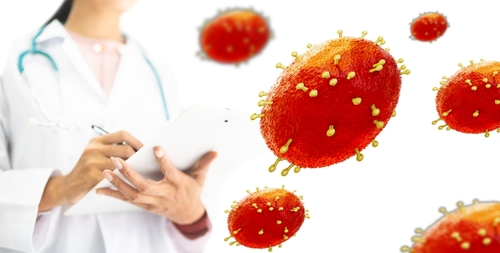
More than 100 members of Congress, backed by more than 100 organizations, sent a letter to the Biden administration this week, urging additional funding for sexual health clinics dealing with the expanding monkeypox outbreak.
Signatories of the letter, led by U.S. Reps. Jerrold Nadler (D-NY) and David Cicilline (D-RI), requested that $100 million in funding be dedicated to implementing federal monkeypox response efforts, including at least $30 million for the Centers for Disease Control and Prevention’s (CDC) Division of STD Prevention.
As of July 25, 2022, the CDC recorded more than 3,800 cases of monkeypox – a typically rare disease non-endemic to the United States – throughout the country. Globally, the disease has topped 17,850 cases, and only 243 of these are in countries that have historically suffered from monkeypox. Acknowledging the seriousness of the situation, the World Health Organization (WHO) officially declared the outbreak a global health emergency last week.
This has caused demand for testing and vaccines to surge, and this Congressional pressure is merely the latest in a line of recent efforts calling for attention to the situation.
“As monkeypox cases continue to rise, states and communities are heavily relying on health clinics’ expertise in disease detection, contact tracing, symptom monitoring, and community education, as well as their community connections, to help slow the spread of this virus,” the representatives wrote. “In cities across the U.S., clinics that provide essential family planning, sexual health, and other vital services have now been urgently tasked with expanding appointment capacity, acquiring tests and vaccines, and working with local communities to mitigate the spread of monkeypox.”
The lawmakers sought support for clinical education to help health care professionals properly diagnose monkeypox, differentiate it from sexually transmitted infections (STIs), and treat it accordingly. They also sought the development of more efficient diagnostic tools, better surveillance and outbreak detection, bolstering of the public health workforce, administering more vaccines to communities and healthcare workers, and the scaling of outreach efforts to specific communities, such as the LGBTQIA+ – and in particular, men who have sex with men.
The lawmakers warned that continued underfunding of STI clinics and staffing shortages exacerbated by the COVID-19 pandemic have limited the ability of health professionals to prevent the spread of monkeypox. While monkeypox is not an STI, they emphasized that it is being transmitted through sexual networks – and clinics need testing kits and other supplies, including manpower, to scale up their response.
Organizations that backed the letter included the New York State Department of Health, the National Coalition of STD Directors, the National Coalition of LGBTQ Health, Whitman-Walker Health, and the Human Rights Campaign.




